Adam Hepworth
Contextually Aware Intelligent Control Agents for Heterogeneous Swarms
Nov 22, 2022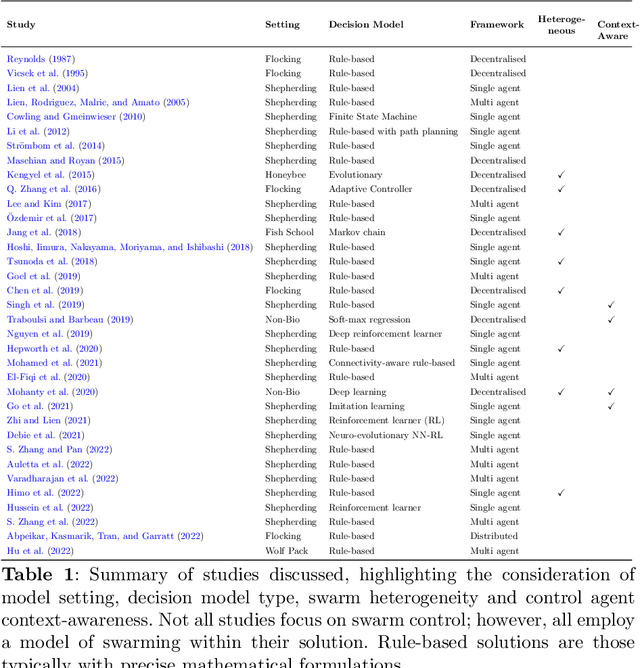
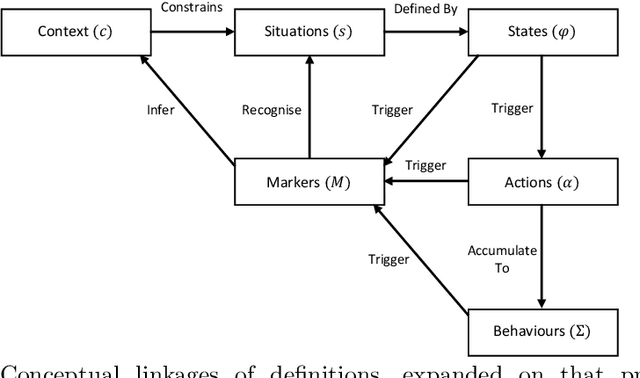
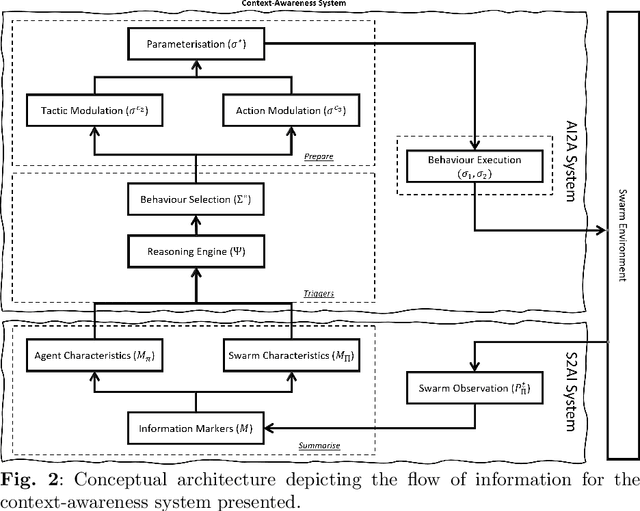
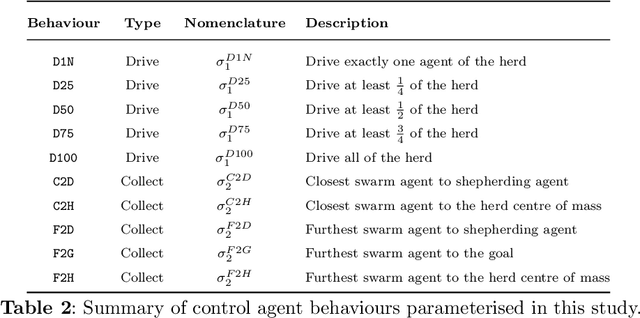
Abstract:An emerging challenge in swarm shepherding research is to design effective and efficient artificial intelligence algorithms that maintain a low-computational ceiling while increasing the swarm's abilities to operate in diverse contexts. We propose a methodology to design a context-aware swarm-control intelligent agent. The intelligent control agent (shepherd) first uses swarm metrics to recognise the type of swarm it interacts with to then select a suitable parameterisation from its behavioural library for that particular swarm type. The design principle of our methodology is to increase the situation awareness (i.e. information contents) of the control agent without sacrificing the low-computational cost necessary for efficient swarm control. We demonstrate successful shepherding in both homogeneous and heterogeneous swarms.
Swarm Analytics: Designing Information Markers to Characterise Swarm Systems in Shepherding Contexts
Aug 26, 2022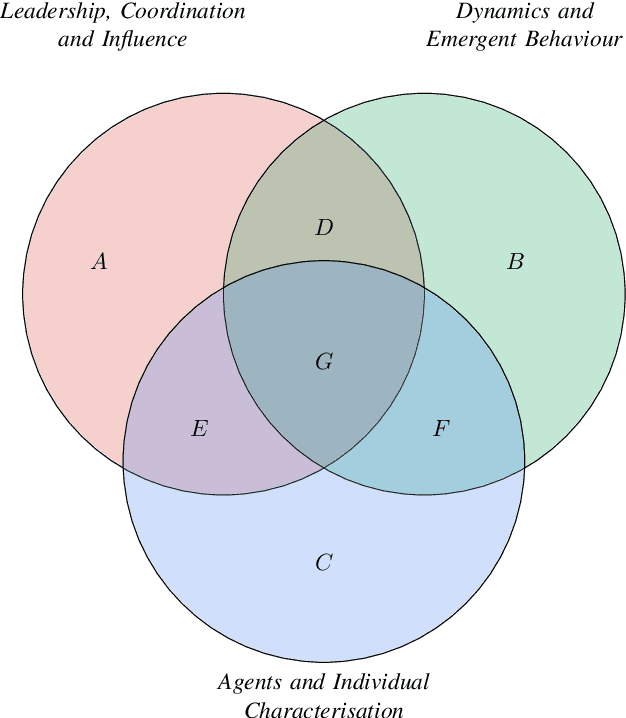
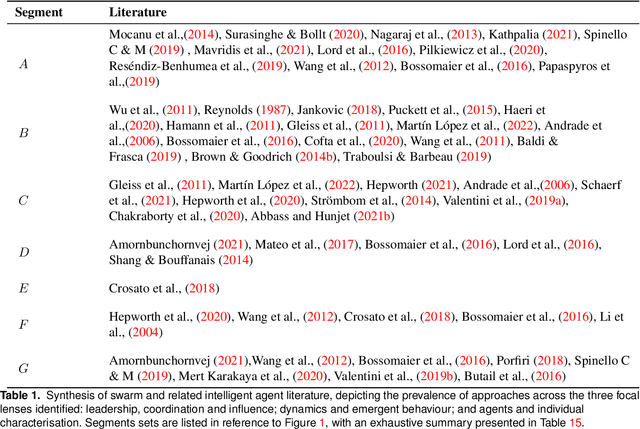
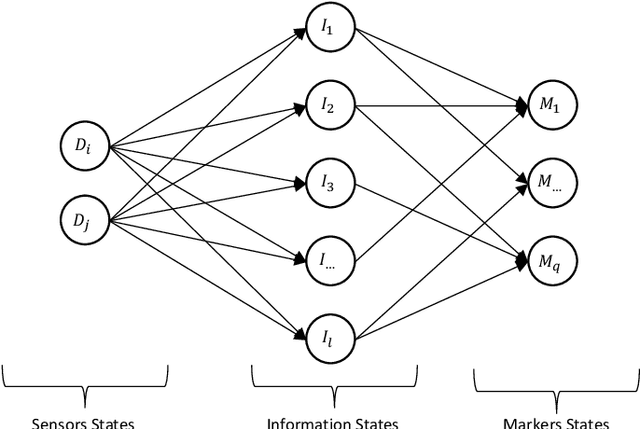

Abstract:Contemporary swarm indicators are often used in isolation, focused on extracting information at the individual or collective levels. These are seldom integrated to infer a top-level operating picture of the swarm, its individual members, and its overall collective dynamics. The primary contribution of this paper is to organise a suite of indicators about swarms into an ontologically-arranged collection of information markers to characterise the swarm from the perspective of an external observer-, a recognition agent. Our contribution shows the foundations for a new area of research that we title \emph{swarm analytics}, which its primary concern is with the design and organisation of collections of swarm markers to understand, detect, recognise, track, and learn a particular insight about a swarm system. We present our designed framework of information markers presents a new avenue for swarm research, especially for heterogeneous and cognitive swarms that may require more advanced capabilities to detect agencies and categorise agent influences and responses.
 Add to Chrome
Add to Chrome Add to Firefox
Add to Firefox Add to Edge
Add to Edge